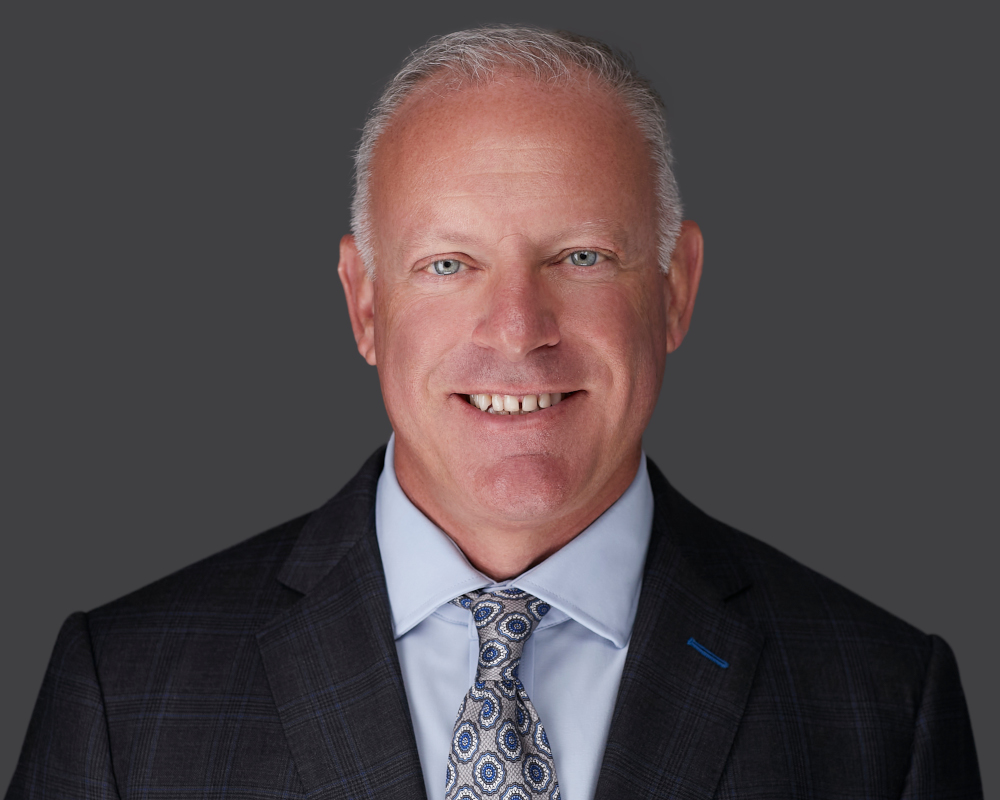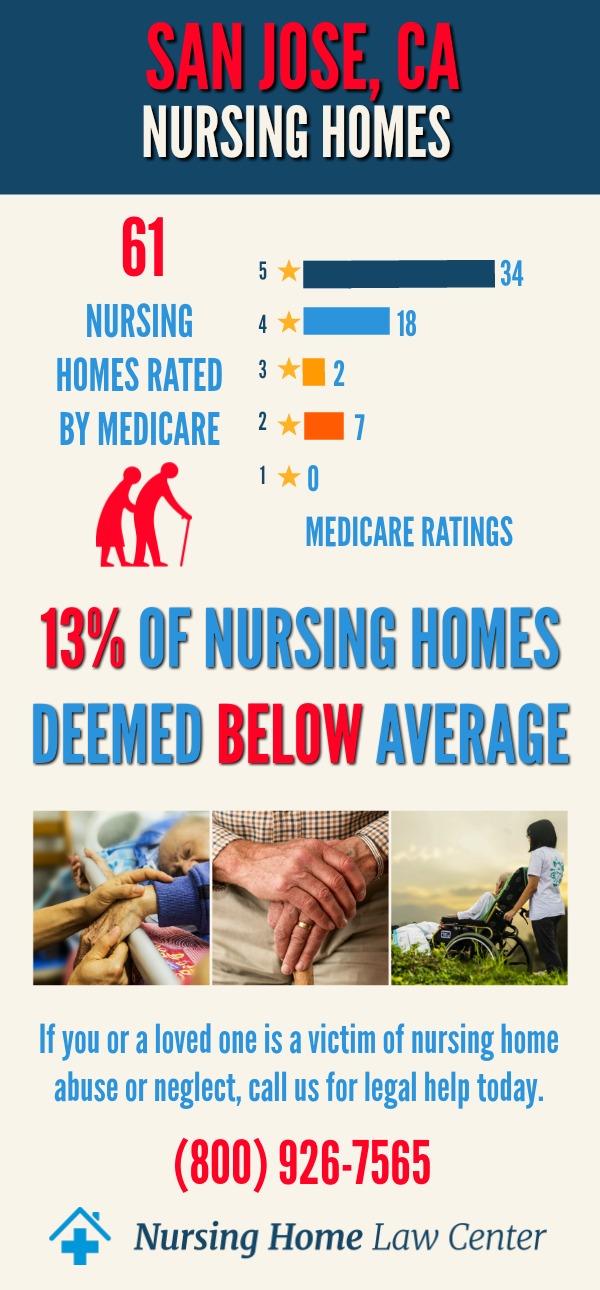The Nursing Home Law Center is committed to providing the legal resources necessary to hold negligent facilities accountable.
San Jose Nursing Home Abuse Lawyer

Licensed in California
Nursing home abuse is a serious issue that affects some of the most vulnerable members of our community. For victims of nursing home abuse, seeking legal help is essential. An experienced San Jose nursing home abuse lawyer can help victims and their families hold negligent care facilities accountable and pursue compensation for the harm caused.
Why Hire Nursing Home Law Center
At Nursing Home Law Center, we are dedicated to obtaining justice and fair compensation for those affected by nursing home abuse. Our skilled legal team has a strong history of managing sensitive nursing home abuse cases and achieving substantial settlements and verdicts.
We carry out comprehensive investigations to address all aspects of abuse, including medical expenses, emotional distress, and other related damages. With extensive knowledge in nursing home abuse claims, we handle the legal process efficiently and work relentlessly to safeguard your rights.
Throughout every stage, we offer clear and compassionate support, ensuring you and your loved ones feel informed, secure, and confident.
Types of Cases Handled by Our San Jose Nursing Home Abuse Lawyers
Nursing home abuse involves the mistreatment or neglect of elderly residents in nursing homes or care facilities. Our San Jose nursing home abuse lawyers handle a wide range of cases to ensure victims receive the justice and compensation they deserve.
- Physical Abuse: Includes the intentional infliction of bodily harm through actions like hitting, pushing, or restraining residents improperly.
- Mental and Emotional Abuse: Occurs when residents are subjected to verbal assaults, threats, or isolation.
- Sexual Abuse: Involves any non-consensual sexual contact or sexual assault of a nursing home resident.
- Medical Malpractice: Includes neglectful care that results in harm, such as untreated bedsores, medication errors, or improper medical treatment.
- Negligence: Neglect occurs when nursing home staff fail to meet basic care standards, resulting in harm. Examples include inadequate hygiene, malnutrition, dehydration, and allowing residents to wander unsupervised (elopement).
- Financial Abuse: When a resident’s finances are exploited by nursing home employees or others. This can include theft of money, forging checks, or manipulating the resident into giving away assets.
- Wrongful Death: In severe cases, nursing home abuse or neglect can lead to the wrongful death of a resident. Families can file a wrongful death claim to hold the facility and its staff accountable for the loss of their loved one due to substandard care or intentional harm.
Understanding Your Legal Rights
Federal and state laws protect nursing home residents in San Jose, ensuring their safety, dignity, and right to quality care.
The Nursing Home Reform Act of 1987 guarantees residents’ rights to be free from abuse, neglect, and mistreatment and ensures proper medical attention and personal care. Violations of these rights can lead to legal action.
In California, the Elder Abuse and Dependent Adult Civil Protection Act (EADACPA) further protects elderly residents from abuse, allowing victims or their families to pursue legal claims for compensation due to negligence or exploitation.
Eligibility to File a Claim
If they are capable of doing so, the resident may file a claim for any abuse or neglect they have suffered.
In cases where the resident is physically or mentally unable to file a claim, family members or legal guardians can take legal action on their behalf.
In wrongful death cases, the estate or surviving family members may file a claim to seek justice for the loss of a loved one due to abuse or neglect.
Liability in Nursing Home Abuse and Neglect Cases

In cases of nursing home abuse or neglect, multiple parties may be held legally responsible for the harm inflicted on residents.
- Nursing home facilities
- Nursing home staff
- Medical providers
- Third-party contractors
How Our San Jose Nursing Home Abuse Attorneys Can Help
Our experienced team of San Jose nursing home abuse lawyers at Nursing Home Law Center has a long history of successfully representing victims of nursing home negligence litigation. We provide comprehensive support throughout the legal process, helping victims and their families pursue justice and financial compensation.
- Free Case Evaluation: We offer a free consultation to discuss the details of your nursing home abuse case, evaluate the potential for legal action, and outline your available options. This initial meeting helps us understand your situation and provide guidance on the best course of action.
- Case Investigation: Our attorneys conduct a thorough investigation into the abuse or neglect, gathering evidence such as medical records, staff reports, and witness statements. This step allows us to build a strong case demonstrating the facility’s wrongdoing and the extent of harm suffered by the resident.
- Filing the Claim: Once we have collected the necessary evidence, we handle all aspects of filing the claim. These actions include preparing legal documents, submitting paperwork, and ensuring deadlines are met so your case moves forward without unnecessary delays.
- Settlement Negotiation: In many cases, nursing homes prefer to resolve claims through a settlement to avoid a lengthy trial. Our legal team has extensive experience in settlement negotiations, working to secure fair compensation for medical costs, emotional trauma, and other damages.
- Trial if Needed: If a fair settlement cannot be reached, our elder abuse lawyers are fully prepared to take the case to court. We have a strong record of success in trial litigation, advocating for the maximum compensation possible and holding negligent nursing homes accountable.
Common Signs of Elder Abuse Among Nursing Home Residents
Out of 71 Medicare-approved nursing homes in San Jose, 11 (15%) have an overall score below or much below average in Medicaid services. Specifically, 19 facilities (27%) fall short in health inspections, and 16 homes (23%) have inadequate staffing. Four facilities (6%) are rated poorly in quality measures. [1]
Elder nursing home abuse can be challenging to detect, especially when residents are unable or afraid to speak out. However, family members and caregivers should be aware of the warning signs that may indicate abuse or neglect.
- Unexplained injuries or physical wounds
- Sudden behavioral changes
- Fear of staff members
- Bedsores
- Weight loss or dehydration
- Poor hygiene
- Sudden financial changes
The worst-rated nursing homes in San Jose include:
| Atherton Park Post-Acute | Cupertino Healthcare & Wellness Center |
| Herman Health Care Center | Skyline Healthcare Center – San Jose |
What to Do If You Suspect Nursing Home Abuse
If you believe your loved one is suffering from nursing home abuse, it’s important to act quickly to protect their safety and well-being. Here are the steps you should take:
- Call 911 if There’s Immediate Danger: If your loved one is in immediate physical danger or requires urgent medical attention, contact emergency services right away to ensure their safety.
- Report to the Nursing Home Administrator or Management: Inform the nursing home administrator or management of your concerns. They are required to investigate the issue and take appropriate steps to address the abuse or neglect. Document the conversation and ask for a follow-up to ensure the issue is being handled.
- File a Complaint with Your Local Ombudsman’s Office: The Ombudsman is an independent advocate for nursing home residents who investigates abuse, neglect, or substandard care complaints. Filing a complaint with the Ombudsman’s office ensures an external review of the nursing home’s practices and the specific incident.
- Contact a Nursing Home Neglect Lawyer: Reach out to an experienced San Jose nursing home abuse lawyer who can guide you through the legal process and help hold those responsible accountable. An attorney can help you investigate the abuse, file claims, and pursue financial compensation for your loved one.
Damages You Can Recover Through a Nursing Home Abuse Claim
Victims of nursing home negligence and their families may be entitled to several types of damages depending on the nature and severity of the abuse.
- Economic damages cover the financial costs related to the abuse or neglect.
- Non-economic damages address the emotional and psychological harm caused by the abuse. These are not easily quantifiable but can be significant.
- Punitive damages are awarded in cases of particularly egregious or malicious conduct by the nursing home or its staff. These damages are intended to punish the wrongdoer and deter similar behavior in the future.
The Cost of Hiring a San Jose Nursing Home Abuse Lawyer
At Nursing Home Law Center, we understand that the financial burden of dealing with nursing home abuse can be overwhelming. That’s why we work on a contingency fee basis, meaning there are no upfront fees or out-of-pocket costs for our legal services. We only get paid if we successfully secure compensation for you, either through a settlement or court verdict.
This arrangement ensures that every family, regardless of their financial situation, can seek justice and hold negligent nursing homes accountable without worrying about the cost of pursuing legal action.
You Have Limited Time to Take Legal Action in San Jose
In California, the statute of limitations for filing a nursing home abuse claim is generally two years from the date of the abuse or injury. For wrongful death claims, the two-year period typically begins from the date of the resident’s passing. Failing to file within this time frame can result in losing the right to pursue legal options.
Consulting a San Jose nursing home abuse lawyer as soon as possible ensures that you take timely steps to protect your loved one’s rights and seek compensation.
Contact a San Jose Nursing Home Abuse Attorney Today!
At Nursing Home Law Center, our experienced legal team of California nursing home abuse lawyers has successfully represented countless victims of nursing home abuse in San Jose and throughout Northern California. With a long history of handling complex elder abuse cases, we are committed to holding negligent nursing homes accountable and ensuring justice for abused residents.
Call us at (800) 926-7565 or complete our contact form.
References: [1] Medicare

